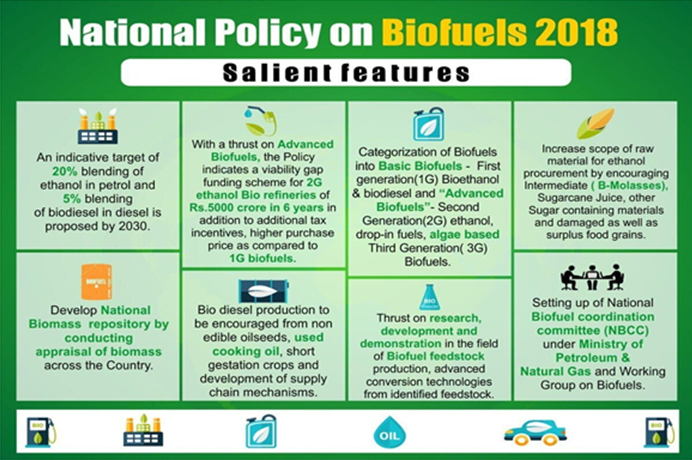

16th December 2023 (9 Topics)
Context
The government's recent decision to ban the use of sugarcane juice and sugar syrup for ethanol production comes a week after the industry requested a reversal of the decision.
Key Highlights
Policy Reversal: The government has reversed its decision to ban the use of sugarcane juice for ethanol production, allowing its utilization along with B-heavy molasses. However, sugar diversion for ethanol is capped at 17 lakh tonnes.
Temporary Capping: The cap on sugar diversion will be applicable for the 2023-24 supply year, ending in October next year. The decision follows a week of industry protests against the initial ban on cane juice and sugar syrup for ethanol.
Flexibility for Sugar Mills: Sugar mills are now granted flexibility in using both sugarcane juice and B-heavy molasses within the 17 lakh tonnes cap for ethanol production in the ongoing supply year.
Modalities Under Consideration: Officials are working on determining the proportion of cane juice and molasses for ethanol production. Some ethanol has already been produced using cane juice in the current supply year.
Industry Representation: The reversal comes after representations from the sugar industry to review the earlier ban, emphasizing its impact on ethanol production and financial strain on mills.
Concerns and Challenges: The government's decision is prompted by concerns over low cane production, exacerbated by recent drought conditions in Maharashtra and Karnataka.
Ethanol Blending Target: Despite challenges, officials express confidence in achieving the 15% ethanol blending target with petrol in the 2023-24 supply year.
Review of Sugarcane Juice Ban: Acknowledging industry distress, officials assure a review of the ban on sugarcane juice, emphasizing its temporary nature and the need for national interest.
Industry's Financial Strain: The Indian Sugar Mills Association urges the government to revise ethanol prices from B-heavy and C-heavy molasses to support millers financially.
Price Revision Demands: Industry demands include raising ethanol prices from B-heavy molasses to ?64 per litre and from C-heavy molasses to ?58-59 per litre.
|
National Biofuel Policy
|
More Articles



